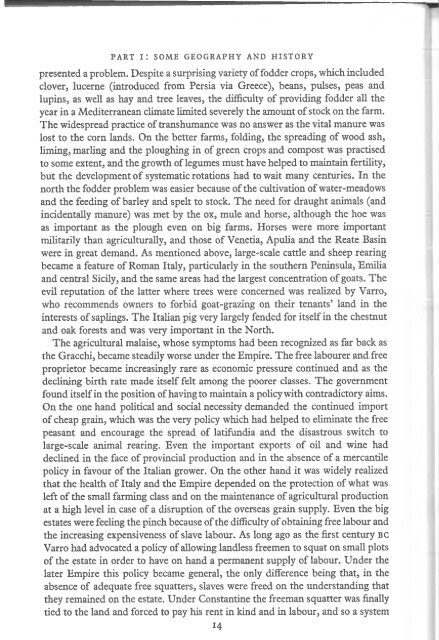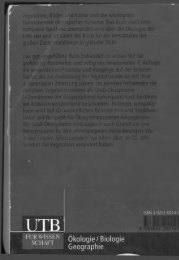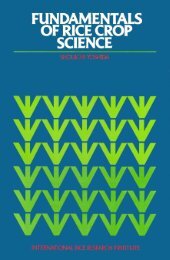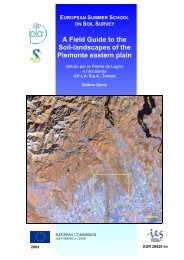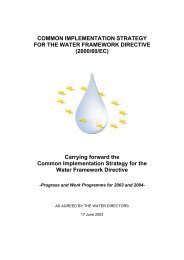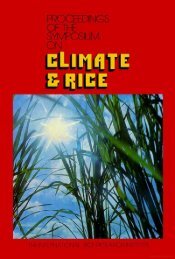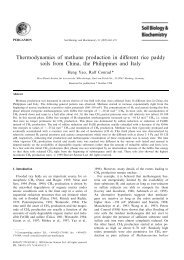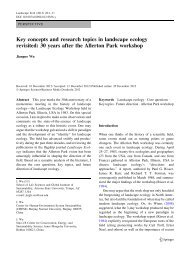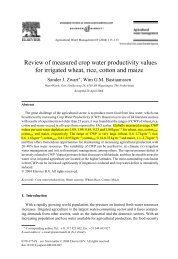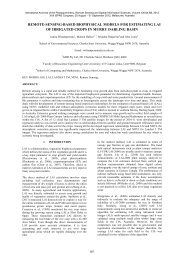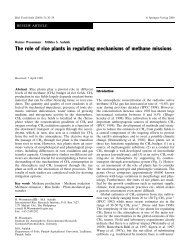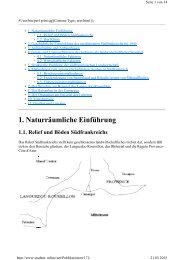Walker - 1967 - A geography of Italy
Walker - 1967 - A geography of Italy
Walker - 1967 - A geography of Italy
Create successful ePaper yourself
Turn your PDF publications into a flip-book with our unique Google optimized e-Paper software.
PART i: SOME GEOGRAPHY AND HISTORY<br />
presented a problem. Despite a surprising variety <strong>of</strong> fodder crops, which included<br />
clover, lucerne (introduced from Persia via Greece), beans, pulses, peas and<br />
lupins, as well as hay and tree leaves, the difficulty o f providing fodder all the<br />
year in a Mediterranean climate limited severely the amount o f stock on the farm.<br />
The widespread practice o f transhumance was no answer as the vital manure was<br />
lost to the corn lands. On the better farms, folding, the spreading o f wood ash,<br />
liming, marling and the ploughing in o f green crops and compost was practised<br />
to some extent, and the growth o f legumes must have helped to maintain fertility,<br />
but the development o f systematic rotations had to wait many centuries. In the<br />
north the fodder problem was easier because o f the cultivation o f water-meadows<br />
and the feeding o f barley and spelt to stock. The need for draught animals (and<br />
incidentally manure) was met by the ox, mule and horse, although the hoe was<br />
as important as the plough even on big farms. Horses were more important<br />
militarily than agricultiurally, and those o f Venetia, Apulia and the Reate Basin<br />
were in great demand. As mentioned above, large-scale cattle and sheep rearing<br />
became a feature o f Roman <strong>Italy</strong>, particularly in the southern Peninsula, Emiha<br />
and central Sicily, and the same areas had the largest concentration o f goats. The<br />
evil reputation o f the latter where trees were concerned was realized by Varro,<br />
who recommends owners to forbid goat-grazing on their tenants’ land in the<br />
interests o f saplings. The Italian pig very largely fended for itself in the chestnut<br />
and oak forests and was very important in the North.<br />
The agricultural malaise, whose symptoms had been recognized as far back as<br />
the Gracchi, became steadily worse imder the Empire. The free labourer and free<br />
proprietor became increasingly rare as economic pressure continued and as the<br />
declining birth rate made itself felt among the poorer classes. The government<br />
found itself in the position o f having to maintain a policy with contradictory aims.<br />
On the one hand pohtical and social necessity demanded the continued import<br />
o f cheap grain, which was the very policy which had helped to eliminate the free<br />
peasant and encourage the spread o f latiflmdia and the disastrous switch to<br />
large-scale animal rearing. Even the important exports o f oil and wine had<br />
declined in the face o f provincial production and in the absence o f a mercantile<br />
poUcy in favour <strong>of</strong> the Italian grower. On the other hand it was widely reahzed<br />
that the health o f <strong>Italy</strong> and the Empire depended on the protection o f what was<br />
left o f the small farming class and on the maintenance o f agricultural production<br />
at a high level in case <strong>of</strong> a disruption o f the overseas grain supply. Even the big<br />
estates were feeling the pinch because o f the difficulty o f obtaining free labour and<br />
the increasing expensiveness o f slave labour. As long ago as the first century BC<br />
Varro had advocated a policy o f allowing landless freemen to squat on small plots<br />
o f the estate in order to have on hand a permanent supply o f labour. Under the<br />
later Empire this policy became general, the only difference being that, in the<br />
absence o f adequate free squatters, slaves were freed on the understanding that<br />
they remained on the estate. Under Constantine the freeman squatter was finally<br />
tied to the land and forced to pay his rent in kind and in labour, and so a system<br />
14


